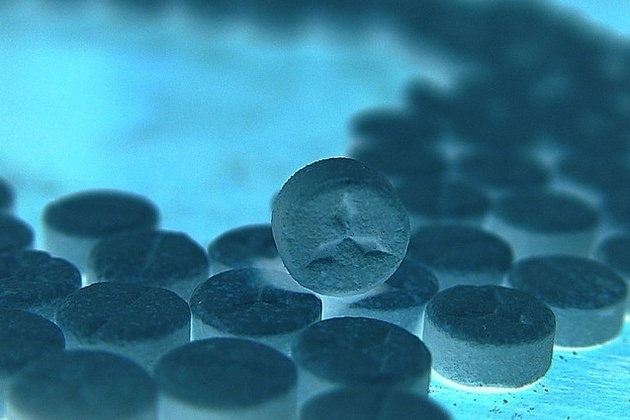 Autism resists both definitions and treatment within the medical
community. But the strange historical interpretation of autistic
behavior and symptoms has led to novel experimental treatments for the
disorder. Sometimes a disease that doesn’t fit neatly into the medical
paradigm must go outside that paradigm in search of nontraditional
treatment options.
Autism resists both definitions and treatment within the medical
community. But the strange historical interpretation of autistic
behavior and symptoms has led to novel experimental treatments for the
disorder. Sometimes a disease that doesn’t fit neatly into the medical
paradigm must go outside that paradigm in search of nontraditional
treatment options.Because autism presents itself in such a variety of ways—from individuals who are completely nonverbal to those with more aggressive, disorganized behaviors—it resists a definitive treatment protocol. In fact, there are no pharmacological interventions that “treat” autism.
Instead, psychiatrists are focused on treating co-morbid conditions, often things like depression, anxiety, and social isolation. So, today, someone on the autism spectrum might take an antidepressant or an atypical antipsychotic medication to improve their experience in the world, but these medications aren’t correcting any neurological changes associated with autism itself. Now, there's building interest in testing the clinical use of psychedelics. Last week, the FDA approved a research study protocol in which adults diagnosed with both autism and social anxiety will be given the psychedelic drug MDMA in hopes that they’ll experience a long-term reduction in anxiety.
Alicia Danforth, a Ph.D. candidate in clinical psychology who focuses on psychedelic research, recently completed a research study on adults with autism who have self-administered ecstasy. Because of how difficult it has traditionally been to get research studies through the FDA approval process, many studies investigating the effects of psychedelic compounds are in fact non-controlled, survey studies on individuals who have illegally and independently used psychedelic drugs. The purpose of this self-administration ranged from those who were using it purely recreationally, to individuals curious about the potential therapeutic effects of MDMA trying, at least partially, to "self-medicate."
The results of her survey study were positive and promising, though of course far more rigorous studies are necessary to strengthen the connection between MDMA use and improvement in social anxiety in the autistic. Danforth said that over half of the people she interviewed spontaneously made reports in improvement in social anxiety.
When asked if structured research studies with autistic people and MDMA will be similar in format to the PTSD trials already underway, Danforth said that there’s a “general consensus in the field that conventional psychotherapies don’t work particularly well with autistic individuals. There are some barriers to developing that trust and therapeutic rapport, so we’re really reconsidering what MDMA-assisted therapy will look like.” So perhaps it’s the actual experience of trust enabled by the drug, rather than any specific talk therapy that takes place while under the influence, that is ultimately beneficial.Danforth states that over half of the people she interviewed spontaneously made reports in improvement in social anxiety.
It’s important to note that those on the autism spectrum do not necessarily want to be “cured” of their autism, to become neurotypical. Many of the manifestations (or symptoms) of autism can be seen as beneficial—for example, increased ability to focus on details and highly specialized interests. However, the difficulty in relating to others can take a psychological toll. New research into psychedelics and autism treatment is focused on this aspect of the disorder: they want to ease co-existing anxiety, not “fix” neurological differences.
Psychedelics operate in a way that is fundamentally different from the most common pharmacological treatments for mental illnesses like depression and anxiety. These drugs—things like SSRIs and atypical antipsychotics—are maintenance therapies, taken over years or decades to suppress symptoms. Psychedelic drugs operate on the principle that a person can alter their perception of the world in a more permanent way via transient, controlled psychedelic experiences. So while a person who undergoes MDMA-assisted therapy might continue to take some supportive therapy (like an antidepressant) after the experience, the hope is that they would have a sustained improvement in their social anxiety as a result of the therapy.
No comments:
Post a Comment